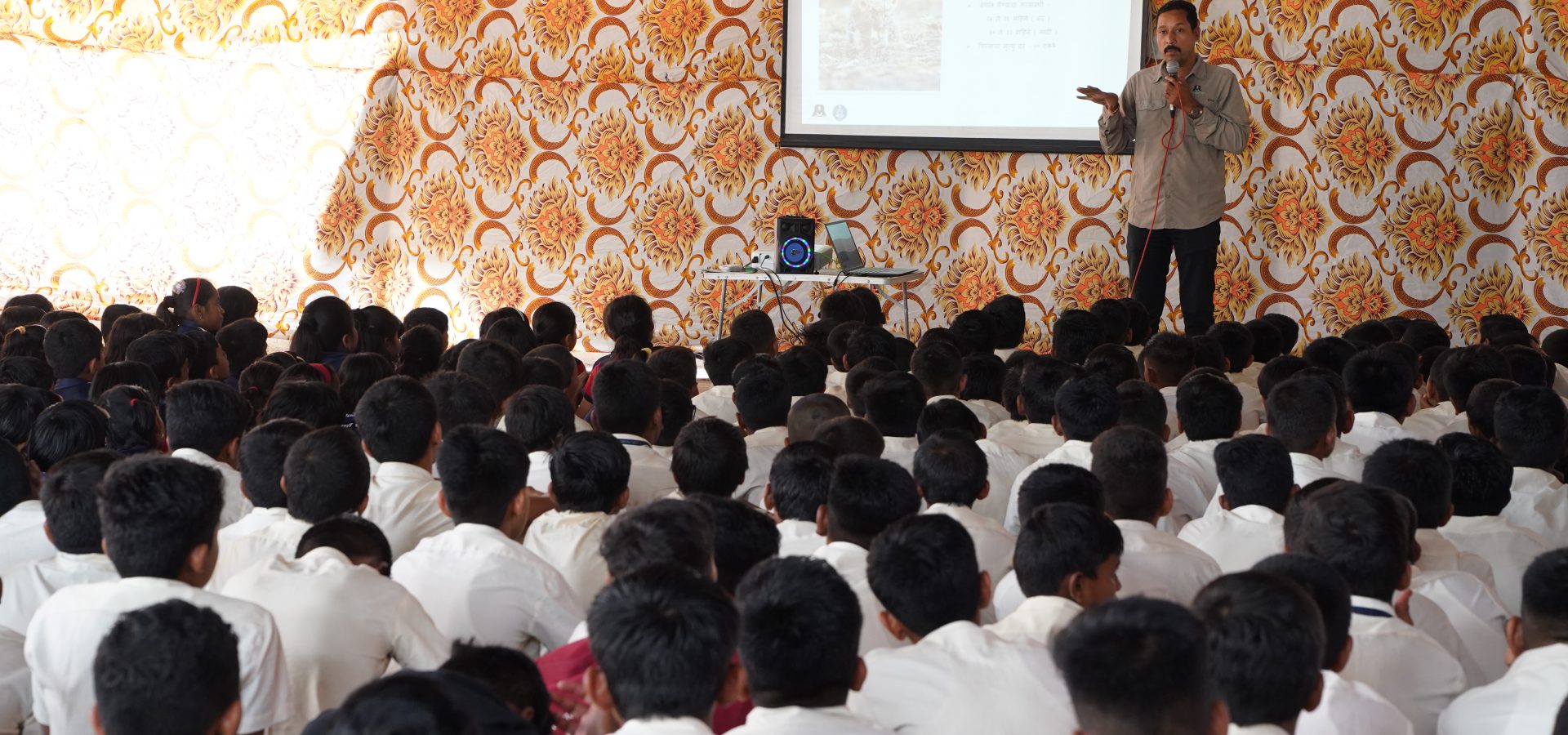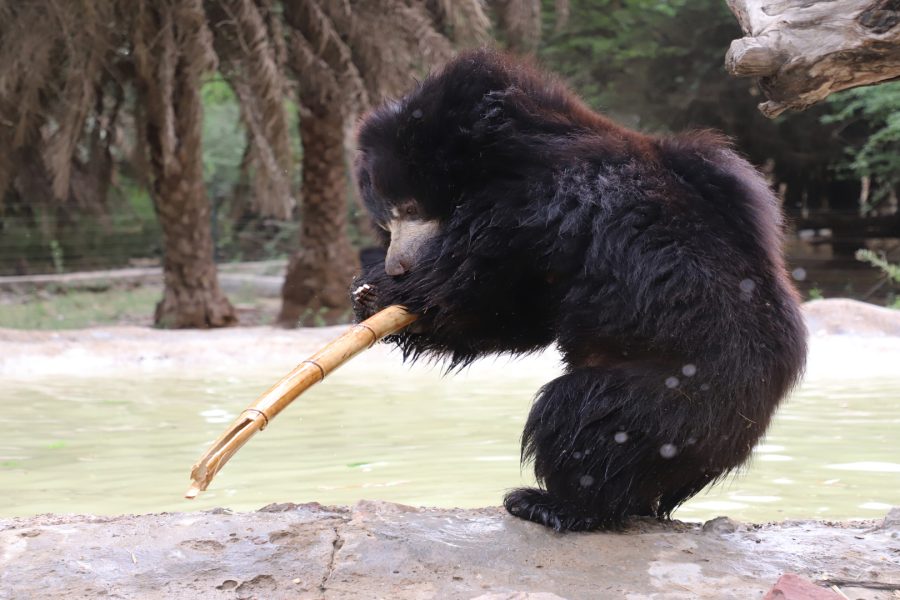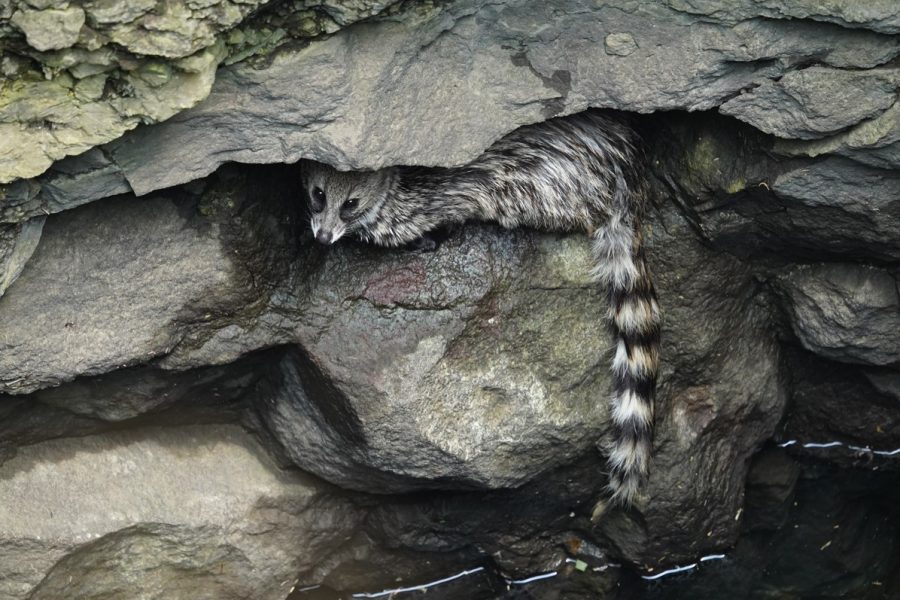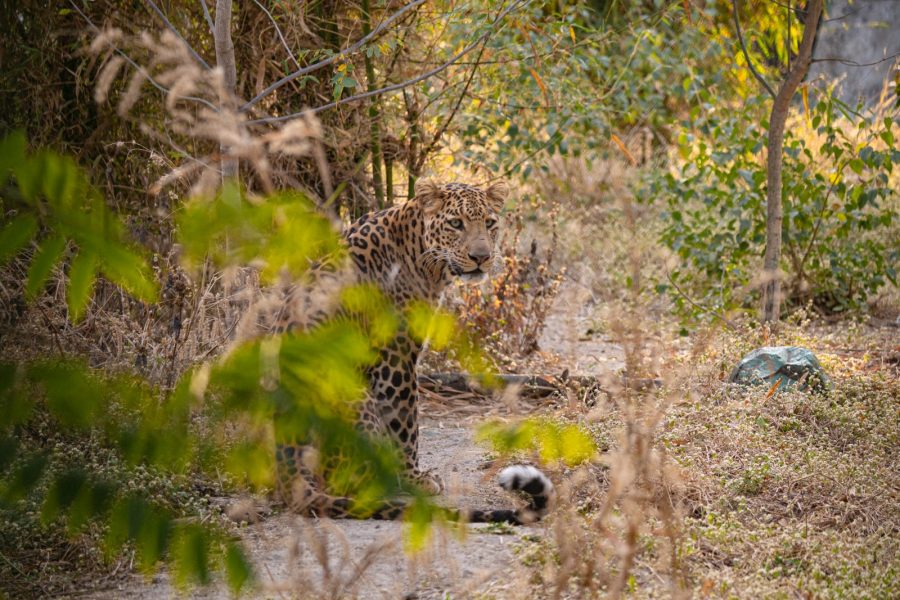Maharashtra’s landscape is diverse, encompassing lush green forests, vast plateaus, rolling hills, and protected ecosystems like the Western Ghats and national parks. The variety of habitats creates ideal environments for the elusive and magnificent leopard to reside in. The state’s geography enables leopards to move between different areas, promoting genetic connectivity and preventing genetic isolation and inbreeding. This intermingling sustains healthy leopard populations.
Human communities extending further into leopard habitats has led to the concentration of leopards in a limited forest region. Leopards are territorial by nature, which can hinder their adaptability and survival within confined territories. Along with this, habitat fragmentation, dwindling natural prey, poaching, and limited awareness among locals residing in proximity to the wild have led to numerous human-leopard conflicts, gravely affecting both leopards and humans. Thus, in order to conserve wildlife, raising awareness among those living close to forested regions and those safeguarding the forests can help to foster harmony between these big cats and local communities.
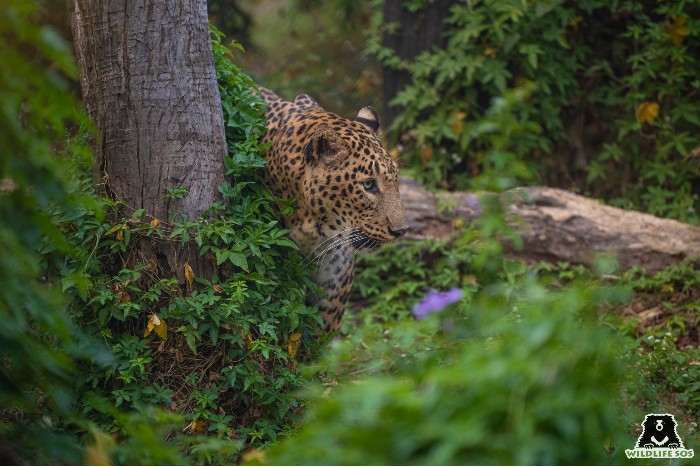
Our team at the Manikdoh Leopard Rescue Centre (MLRC) collaborates closely with the forest department to encourage peaceful coexistence between leopards and human communities. From assisting in leopard rescues and providing them long-term care, to conducting awareness and training sessions, we take on a multifaceted approach to leopard conservation.
Our efforts encompass a range of sessions designed to educate the community about the vital role leopards play in the ecosystem, and what to do if and when they encounter them. This knowledge equips the locals with the skills needed to peacefully and responsibly share their surroundings with these apex predators.
Empowering the Next Generation
Our commitment extends to the next generation as well, recognising them as future stewards of the environment. Young people often wield significant influence over the behaviours of their families and those sharing the same neighbourhood, and thus can serve as effective ambassadors for wildlife conservation. Therefore, awareness sessions among students play a pivotal role in our conservation endeavours.
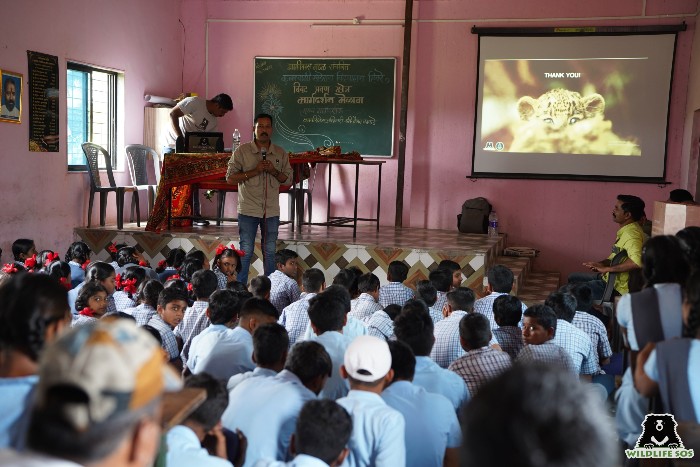
During the month of October this year, our team at MLRC conducted awareness sessions in seven educational institutes located in areas with high leopard density. These sessions served as valuable opportunities for students to delve into the world of conservation and leopards, exploring their roles within ecosystems and the challenges they confront in an increasingly human-dominated world. These sessions also provided essential guidance to students, informing them about the dos and don’ts when they encounter wildlife. The youth were given insights on the steps necessary to coexist harmoniously with leopards and other wildlife in their vicinity, ensuring safety for both humans and wildlife.
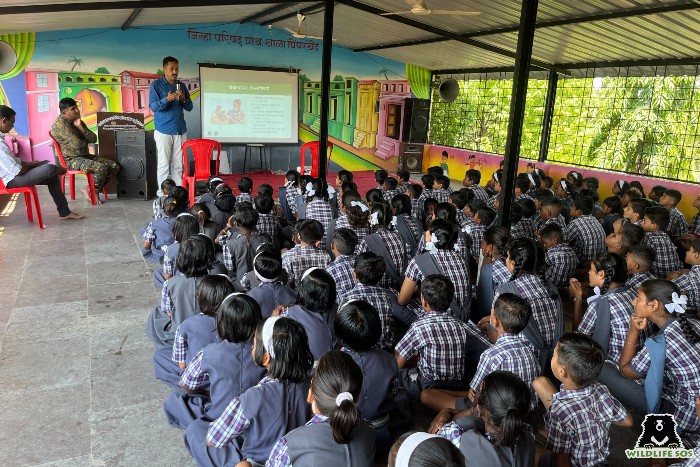
The academic institutions we visited included Zilla Parishad School in Pimparkhed, Hindmata Vidyalaya in Vadgaon Kandali, Sahyadri School in Wada Khed, Annasaheb Waghire College in Otur, Shree Sambhaji School in Bori, Shri Pandit Nehru School in Nimgaon Sava, and Kulswami Khanderaya School in Hivare Tarfe Narayangaon.
Our sessions aimed to nurture a sense of responsibility and empathy for wildlife and the environment among these young minds, who have the potential to become strong conservationists or environment advocates in the future.
Training Sessions for Frontline Forest Staff
Apart from our school sessions, our team has expanded its outreach to include training sessions for the Khed forest staff and their rescue teams. These dedicated teams are at the forefront of managing human-wildlife conflicts in their regions. In these sessions, the MLRC team shared their expertise with the forest staff, focusing on conflict situations, particularly those involving leopards. The rise in the number of leopards rescued from open wells was brought to the forefront as well. The Wildlife SOS team also provided hands-on training in the utilisation of specialised rescue equipment like snare poles, dart guns, and blow pipes.
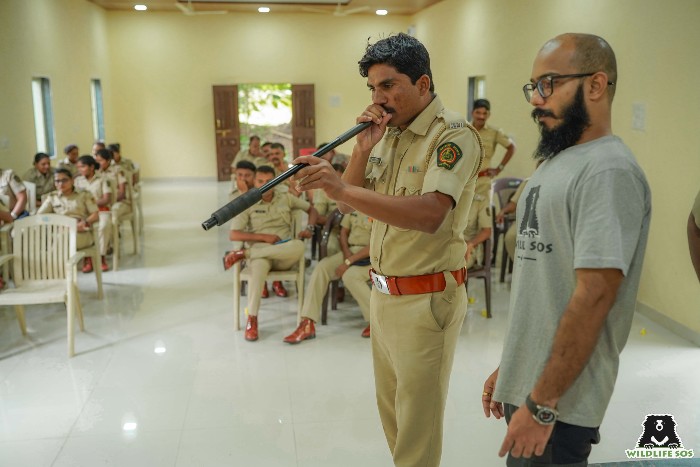
The escalating human population and the resulting encroachment upon animal habitats have led to a surge in human-animal conflicts. As a consequence, local forest departments are under additional pressure to manage and address these delicate situations for the welfare of both animals and the human community. Our awareness sessions are designed to provide forest staff with a deeper understanding of the behaviour of these elusive big cats, and promote measures to prevent fatalities or injuries.
Through concerted conservation initiatives and community engagement, Wildlife SOS, in collaboration with the Maharashtra Forest Department, is striving to secure a future where both human populations and leopards can thrive without conflict. Together, we strive to ensure the preservation of the state’s rich biodiversity and natural heritage for generations to come.
Contact us at info@wildlifesos.org if you are interested in having us conduct awareness or training sessions led by our team of professionals.

